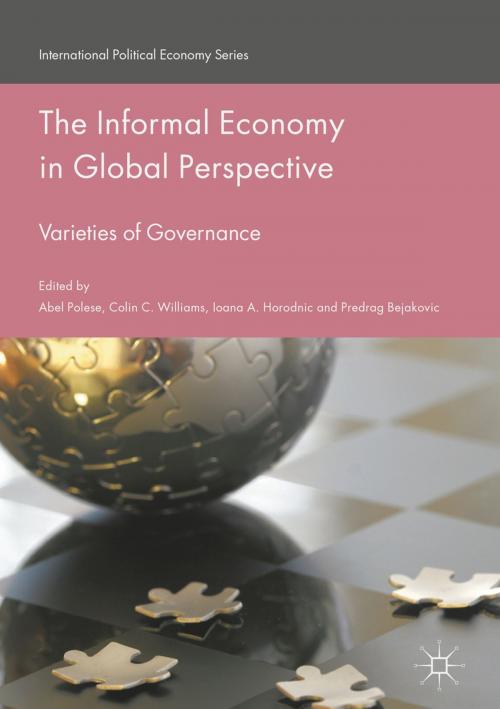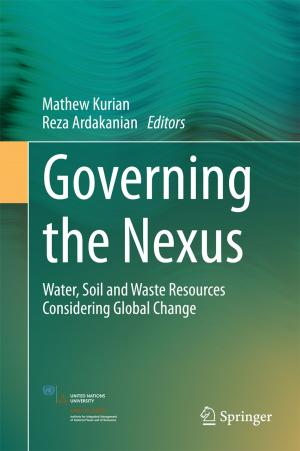The Informal Economy in Global Perspective
Varieties of Governance
Nonfiction, Social & Cultural Studies, Political Science, Politics, Economic Conditions, Social Science, Business & Finance| Author: | ISBN: | 9783319409313 | |
| Publisher: | Springer International Publishing | Publication: | April 18, 2017 |
| Imprint: | Palgrave Macmillan | Language: | English |
| Author: | |
| ISBN: | 9783319409313 |
| Publisher: | Springer International Publishing |
| Publication: | April 18, 2017 |
| Imprint: | Palgrave Macmillan |
| Language: | English |
This book critically engages with how formal and informal mechanisms of governance are used across the world. Specifically, it analyzes how the governance mechanisms of formal institutions are questioned, challenged and renegotiated through informal institutions. Whilst there is an emerging body of scholarship focusing on informal practices, this is scattered across a number of disciplines. This edited collection, by contrast, fosters a dialogue on these issues, moving away from monodisciplinary and normative methodologies that view informal institutions and practices simply as temporary economic phenomena. In doing so, the authors provide a wider understanding of how governance is composed of both the formal and the informal, which complement each other but are also constantly in competition. This novel approach will appeal to social scientists, economists, policy-makers, practitioners, and anyone else willing to widen their understanding of how governance works.
This book critically engages with how formal and informal mechanisms of governance are used across the world. Specifically, it analyzes how the governance mechanisms of formal institutions are questioned, challenged and renegotiated through informal institutions. Whilst there is an emerging body of scholarship focusing on informal practices, this is scattered across a number of disciplines. This edited collection, by contrast, fosters a dialogue on these issues, moving away from monodisciplinary and normative methodologies that view informal institutions and practices simply as temporary economic phenomena. In doing so, the authors provide a wider understanding of how governance is composed of both the formal and the informal, which complement each other but are also constantly in competition. This novel approach will appeal to social scientists, economists, policy-makers, practitioners, and anyone else willing to widen their understanding of how governance works.















